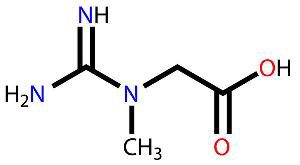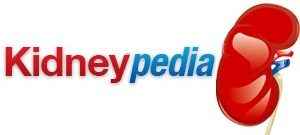
BUN and Creatinine are waste byproducts of protein metabolism that are usually filtered by your kidneys and excreted in your urine. Sometimes these metabolites become elevated and can indicate to physicians that you may have problems with your kidneys.
BUN
BUN stands for Blood Urea Nitrogen, which is a fancy word for urea or uric acid. BUN is a direct, short term metabolite of protein which may be from your diet or from proteins in your body such as muscles. Normal levels of BUN are between 7 and 18 mg/dL.
Creatinine
Creatinine is a more long-
race and sex.
BUN Creatinine Ratio
BUN Creatinine Ratio can help a physician to decide what has caused your renal failure or if you have renal failure at all. This generally is only helpful if you do not already have chronic renal failure, and are just having an acute episode of renal disease. Normal BUN:Creatinine ratios are 10:1 to 20:1.
What Does High BUN Creatinine Ratio Indicate?
If your BUN Creatinine Ratio is High, your physician will decide what this means for you. If you have Acute Renal Failure, and your BUN and Creatinine are both elevated, high BUN Creatinine Ratio may indicate that your kidneys are failing due to dehydration. Sometimes your BUN Creatinine Ratio might be high and you don’t have renal failure at all. You may be eating a high protein diet recently, which would cause your BUN to go higher than your creatinine due to the short term protein metabolism. You also may have a Gastrointestinal Bleed, or be on steroid drug therapy. This is especially true if your Creatinine is normal and your BUN is high.
What If I Have Chronic Kidney Disease?
If you already have been diagnosed with Chronic Kidney Disease, or CKD, your physician will probably not look at BUN Creatinine Ratio. It is not a very useful assessment tool in this case. Your BUN can fluctuate based on what amounts of protein you eat in your diet on a daily basis.
Symptoms
You could have a high BUN Creatinine Ratio and not have any symptoms at all. If you do have renal failure, and both your BUN and Creatinine are elevated, you may have the following symptoms:
–
–
–
–
–
–
–
Prognosis
The prognosis of your High BUN Creatinine ratio depends on what factors have caused it and whether you have Acute Renal Failure or not. Speak with your physician about the possible prognosis.
Treatment
Treatment for High BUN Creatinine ratio also depends on the cause. If you have Acute Renal Failure, you may be given IV Fluids to wake your kidneys back up to function properly. If your BUN is elevated and your Creatinine is normal, but you have a high BUN Creatinine Ratio, you might need to reduce the amount of protein you consume, or drink more fluids. As always, check with your physician to see what treatment options are right for you.
